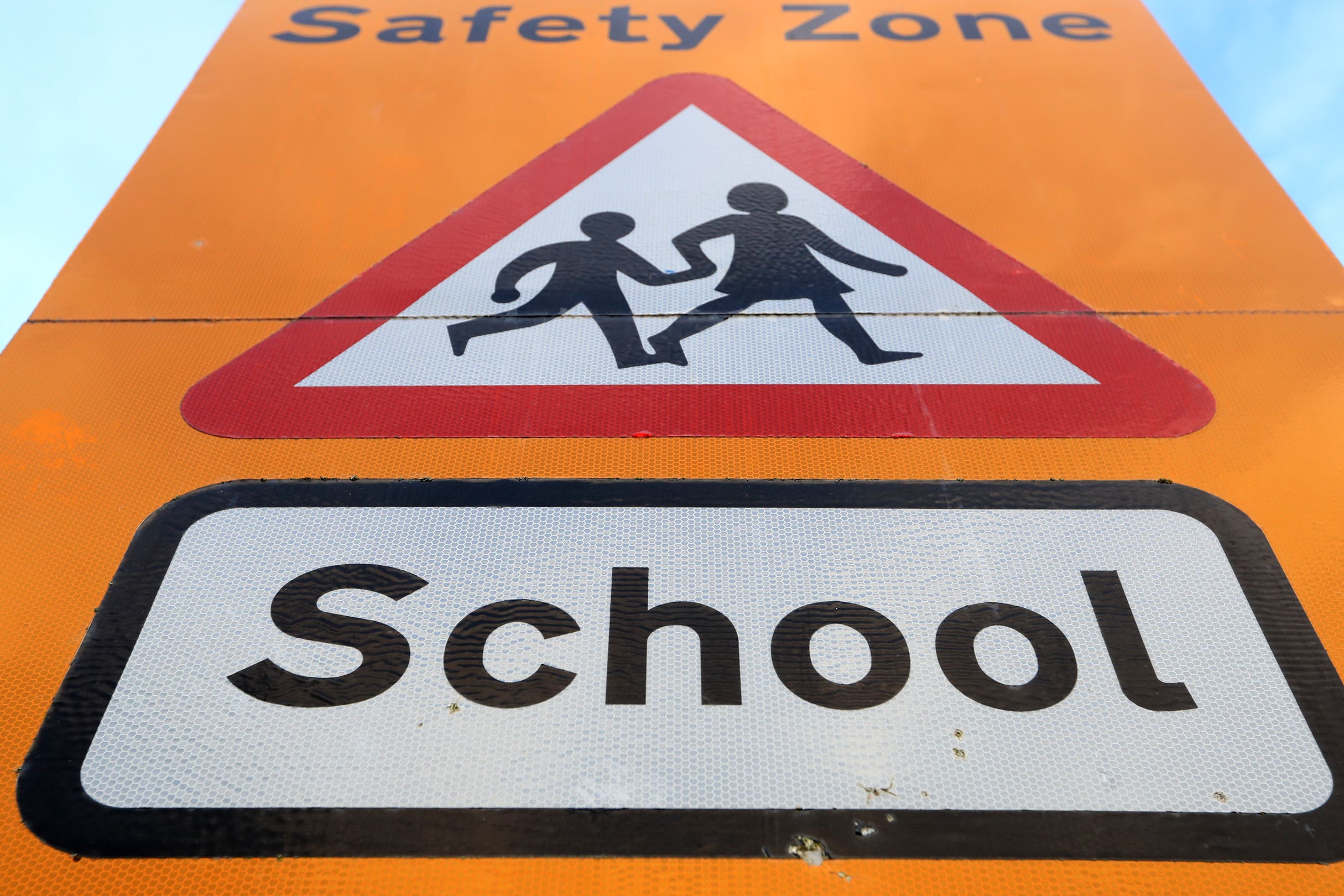Thousands of children each day have lost out on learning due to suspensions
The equivalent of more than 3,000 children each day lost learning through suspension from school in 2021/22, Department for Education data reveals.

Your support helps us to tell the story
From reproductive rights to climate change to Big Tech, The Independent is on the ground when the story is developing. Whether it's investigating the financials of Elon Musk's pro-Trump PAC or producing our latest documentary, 'The A Word', which shines a light on the American women fighting for reproductive rights, we know how important it is to parse out the facts from the messaging.
At such a critical moment in US history, we need reporters on the ground. Your donation allows us to keep sending journalists to speak to both sides of the story.
The Independent is trusted by Americans across the entire political spectrum. And unlike many other quality news outlets, we choose not to lock Americans out of our reporting and analysis with paywalls. We believe quality journalism should be available to everyone, paid for by those who can afford it.
Your support makes all the difference.Thousands of children each day have lost out on learning due to suspensions – and the majority are students living in poverty.
The equivalent of more than 3,000 children each day lost learning through suspension from school in 2021/22, Department for Education data reveals.
The figure is higher than before the pandemic, with 2,300 children losing out on learning daily in 2018/19, according to a joint report from charity Impetus, think tank the Institute for Public Policy Research (IPPR) and school leadership charity The Difference.
The Covid-19 pandemic may be over, but the pandemic of lost learning in England is growing.
And as suspensions have risen, a rise in permanent exclusions is expected to follow, the report by a new Who’s Losing Learning? Coalition says.
Suspensions are a point of intervention for schools when difficult behaviours come to the fore, and begin to escalate.
They mark a potential to investigate the cause, and reduce likelihood of further risk and harm, the coalition adds.
More than half of all suspensions were of children living in poverty, who are 3.7 times more likely to be sent home than other children, the report says.
Compared to pre-pandemic suspensions, the numbers of children in poverty losing learning in this way has increased by 75%, against a rise of only 4% for those not in poverty.
Also, children with social workers are four times more likely to lose learning through being sent home from school.
Children with special needs are also more likely to lose learning this way – those in the higher tier of recognised need with Education Health Care Plans are 3.7 times more likely.
While white British children still make up the majority of suspended students (73% or three in four), certain heritages continue to be excluded at higher rates.
Black Caribbean children are 1.5 times more likely to lose learning through suspension than white British peers, and dual heritage white and black Caribbean children are 1.7 times more likely to lose learning.
The comparatively smaller Irish Traveller and Gypsy Roma Traveller populations continue to be the most over-excluded: 2.4 times and 3.2 times more likely than white British children, respectively.
These demographic patterns repeat across other types of lost learning such as children non-attending, leaving school rolls in unexplained ways and permanently excluded children.
The Who’s Losing Learning? Coalition is calling for a clearer understanding of these patterns across this lost learning, so that policy can support schools to deal with the root causes.
Pre-pandemic research established a pattern of repeat suspensions as a warning sign of the path to permanent exclusion, where children are told to leave their school permanently, the report adds.
Fewer than 5% of these young people get the GCSEs they need in English and maths, and they go on to cost the state £370,000 each in extra health, education, welfare and criminal justice costs.
Because suspensions have been rising, a rise in permanent exclusions can be expected to follow, the coalition says, which could see this cohort’s £2.4 billion total cost to the state rise next year.
We should all be worried about the social injustice that the most marginalised children - who already have the biggest barriers to opportunity outside of school - are those most likely to be losing learning through absence, suspension and exclusion.
Suspensions have not risen uniformly everywhere. The suspensions rate has leapt highest in the East Midlands (57% increase), followed by the North West and North East (both 34% increase – just above the national average). The suspension rate has risen least in inner London (7% increase).
Kiran Gill, CEO of The Difference and adviser to The Timpson Review of School Exclusions, said: “The Covid-19 pandemic may be over, but the pandemic of lost learning in England is growing.
“We should all be worried about the social injustice that the most marginalised children – who already have the biggest barriers to opportunity outside of school – are those most likely to be losing learning through absence, suspension and exclusion.
“The Difference is privileged to work with school leaders across the country leaning into this challenge – upskilling themselves and their staff to better identify and respond to those children whose vulnerability is escalating in increasing numbers.
“This is the new frontier of pedagogy: it is clear that parents and society need teachers who aren’t just raising standards in their subject, but in the practices which makes our children safer, mentally stronger and stops them falling away from learning.
“We need tools and policy to support school leaders to take the same rigorous approach to understanding and raising standards in this area of schooling, as they did successfully in teaching and learning over the last decade.”